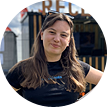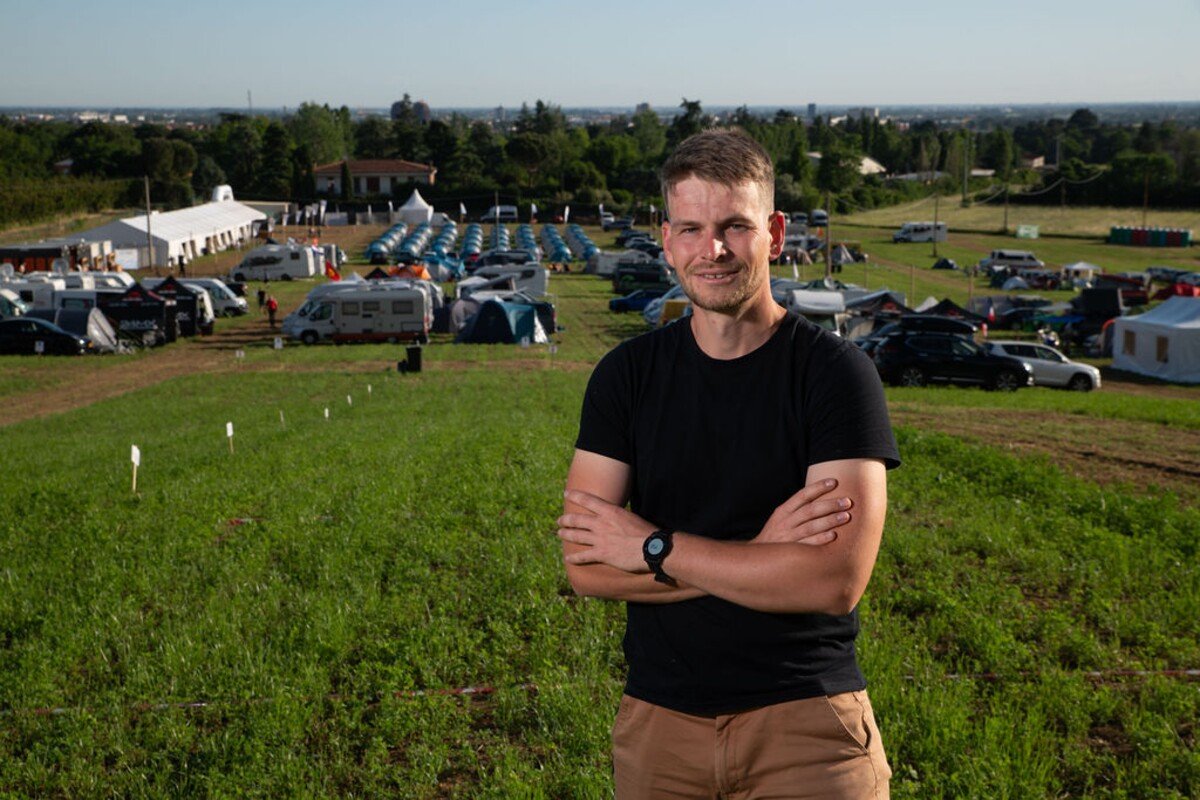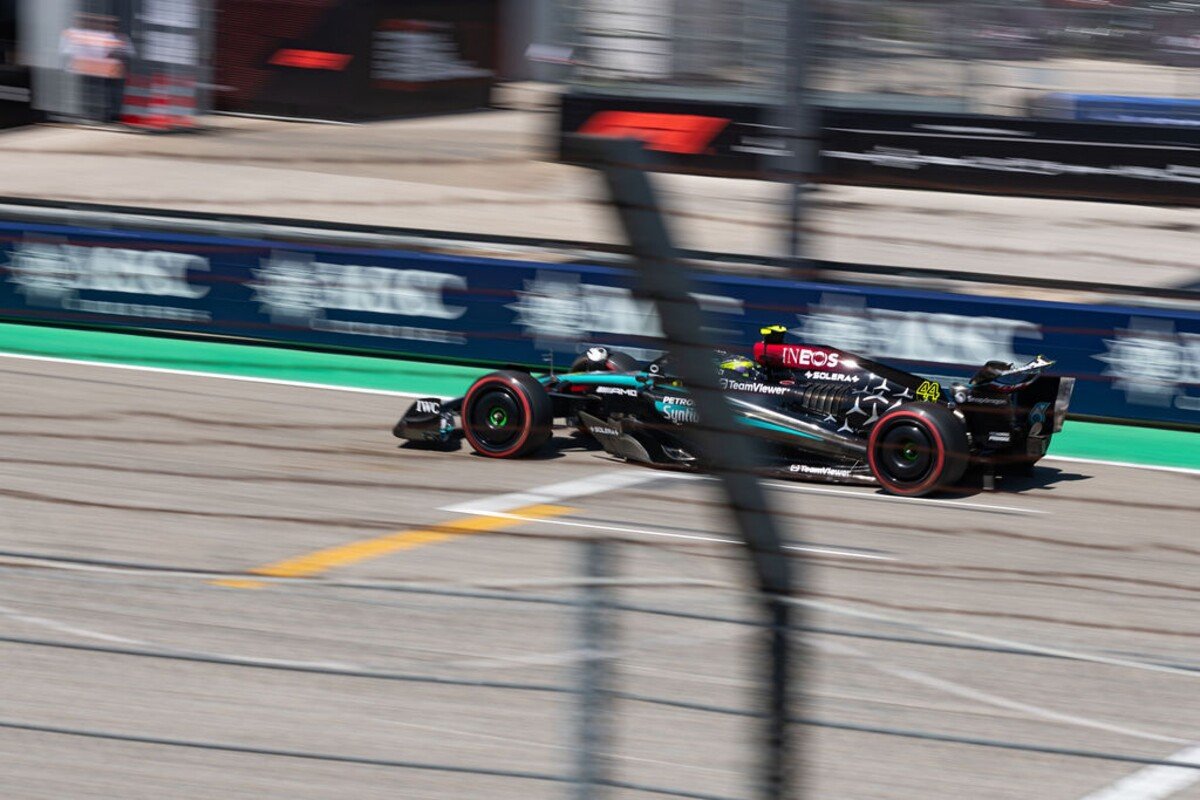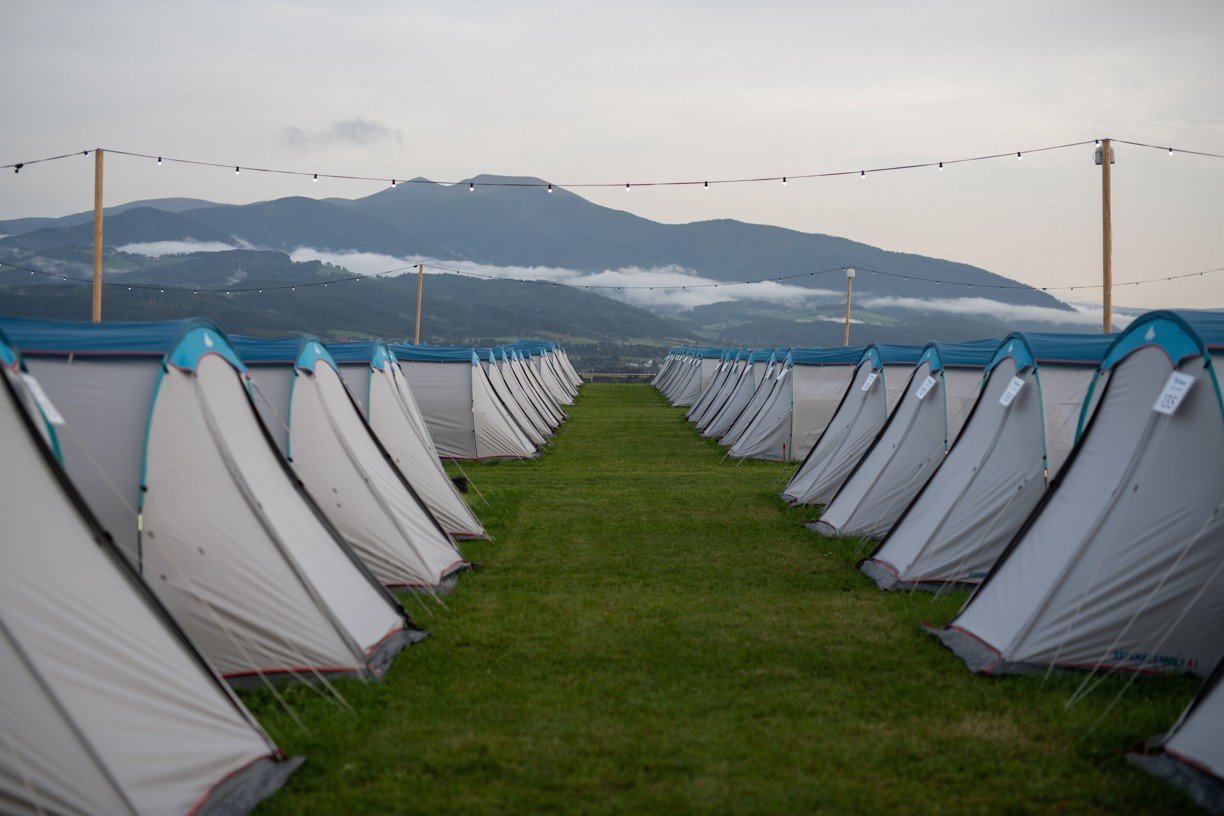From a Teen Entrepreneur to Formula 1 Glamping Pioneer: Petr Bouchal
 Eva Cholevíková
Eva Cholevíková
From humble beginnings in a childhood bedroom to running one of the largest accommodation services at Formula 1 events, Petr's entrepreneurial journey is a story of resilience, innovation, and adaptability. From dropshipping as a teen to crafting unique business solutions during the pandemic, his ventures highlight the power of persistence and vision. Discover how he turned challenges into opportunities and continues to push boundaries in the hospitality and event industry.
You started your business from your "childhood bedroom" at the age of 12. What did that give you, and how did you begin?
I’ve always had an entrepreneurial spirit; business has always attracted me. One big advantage was that I had access to the internet as early as fifth grade. That allowed me to learn how the online world works, and I started building simple websites. Then I moved on to buying hoodies, power banks, solar banks, TVs, or phones on eBay and reselling them. Nowadays, dropshipping is very common, but back then, it wasn’t.
So you already knew then that you would become an entrepreneur.
Yes, but during high school and university, people kept persuading me that I should get a job. Especially at the Brno University of Technology (VUT), there were headhunting events, company days, and similar events every few months. Everyone would tell us how in-demand we were. Maybe that’s why so few of my classmates from back then are entrepreneurs now.
Of course, I also tried various part-time jobs. From the age of 15, I worked on construction sites, and at 17, I went to England, but the agency that was supposed to employ me went bankrupt, and I ended up leaving with a debt of 30,000 Czech crowns. Later, at 19, I went to the U.S. to work as a maintenance worker at a Christian camp.
What was your first real business venture?
The first larger project that became visible was the Diaper Service, a subscription-based service for delivering clean, modern cloth diapers around Prague. I launched this project at around 20 years old, even though I didn’t have kids myself at the time. I got the opportunity thanks to a summer school for aspiring entrepreneurs in Munich. Thousands of people from around the world applied, but only 35 were selected based on interviews and motivational letters, including me. For two weeks, we worked on our business plans with various investors and mentors. It was there that I, along with a guy from New York and a girl from Ghana, came up with the idea of making powders from baby poop. These powders contain specific acids that are valuable in the pharmaceutical industry. The Diaper Service also functioned as a collection system for baby stool. However, the story of a 20-year-old guy without kids trying to create a service for eco-conscious moms didn’t work out, even though the media showed some interest. In the end, we only sold three subscriptions—one bought by a friend who wanted to support me, and two by me to make it look like there was demand. I ended up losing 100,000 crowns on the project and had to shut it down.
I read that you also tried your hand at your own startup. What’s its story?
During my studies in mechanical engineering, I realized that carbon composites were very expensive and generated a lot of waste. We came up with the idea of taking waste from carbon composites, cutting it into short fibers, mixing it in the right proportions with various resins, and compressing it. We discovered that we had created a unique material—cheap due to recycling and with excellent strength properties. In our student setup, we tried to find investors for the startup and attended various conferences.
But in the end, BMW beat us to it. I’m not saying they copied us—it was just a coincidence. When the automaker introduced the BMW i3, the first electric car made from pressed carbon fiber, we understood that our project wouldn’t succeed. That’s life—not everything works out. Plus, it was too big of a project for student conditions, as it would have required tens of millions in investments.
How did your tent adventure begin?
The tent project is our baby, and we’re very proud of it. We decided to address the accommodation problem in small towns during large events. Visitors often struggle to find a place to stay. Initially, we focused on any event with tens or hundreds of thousands of people—motocross races, MotoGP in Spain, Oktoberfest in Munich, and especially Formula 1, our favorite. After COVID, things narrowed down, and now we primarily focus on F1.
Why F1?
Events like Oktoberfest or music festivals also face accommodation shortages, but they attract a clientele mainly there to get drunk. Formula 1 isn’t as tied to alcohol. We sell beer and fine wine, but no hard liquor. There’s no demand for it, and even if there were, customers would just get wasted and cause trouble. That would ruin our image as a calm campsite.
You mentioned that the pandemic helped you refine the events you focus on. Did COVID affect you in any other way?
Large events were generally banned...Before COVID, we planned to develop our own tents. We held an architectural competition and received hundreds of designs. But then the pandemic hit, and people started canceling orders en masse, which served as a warning for us. We temporarily stopped all investments and haven’t pursued this idea since. Designing our own tents no longer makes economic sense, but we have developed our own toilets and showers.
As for COVID, since we halted all investments, we used the funds we had allocated for that purpose to build camper vans. Over a year and a half, we built 40 vehicles, including 12 we bought from the Slovak Post in Poprad. We completely disassembled, insulated, and equipped them with water systems, electrical wiring, and solar panels. Then we had them tested in Germany and sold them as camper vans. However, no one in the Czech Republic knew about us because we sold them to Germans, Swiss, and Belgians.
Was that purely a COVID project, or do you still do it?
It was purely a COVID-era project. When we bought the chassis at the beginning of the pandemic, they cost 300,000 crowns; by 2022, they were twice as expensive. We couldn’t stick to the one-million-crown budget, which is the psychological price cap people are willing to pay for a camper van.
When you say “we,” do you mean the GPtents team?
Exactly. During COVID, we didn’t lay anyone off or terminate any contracts. We simply shifted to a different business with high demand.
You said you have your own toilet designs. Why?
For customers, the most important things are clean toilets in the morning and hot showers in the evening. Breakfast and dinner are secondary pleasures. When we started seven years ago, we decided to reinvest all our earnings. Last year, we finally reached a point where we could afford to design our own toilets and showers, with low water consumption and an aesthetically pleasing design. We even have a special water management system to ensure adequate pressure and a consistent supply of hot water. Thankfully, we no longer face situations where a supplier promises us the “Mercedes of toilets” but delivers a Skoda 120 instead.
And what about your storage needs?
We’re not yet at the point where a bank would consider us creditworthy enough to grant us a loan for purchasing our own warehouse. So we rent them—one in Austria, another in Brno, and a third in Hranice na Moravě. We also transport goods in shipping containers, which we load onto freight trains.
Austria often bans wild camping in its federal states or municipalities. How do other camps around you handle this?
I know of about 15 camps near the Red Bull Ring, but they only offer accommodation. You can’t just park in a lot, and they’re often fully booked. We now have four direct competitors there. Still, I, a 32-year-old man from Hranice na Moravě, run the largest accommodation facility in Spielberg during F1.
Where else are you active?
Before COVID, we were in Spain, the Netherlands, Belgium, Germany, Austria, and the Czech Republic. After COVID, we’ve focused on Italy, Belgium, and Austria. We find it makes sense to stick to events with the highest demand and the most pleasant experience for us. Italy, for instance, is amazing. Recently, a 70-year-old woman visited our tent village, said it looked beautiful, and brought us chilled beers as a thank-you. The next day, a farmer came by and gave us a crate of apricots and homemade wine. Such stories keep happening.
How many people are on your team?
Throughout the season, it’s just five of us working part-time. They’re all friends with their own businesses, so this is more of a hobby for them. From May to September, we’re physically present at the events. Additionally, we get help from 70 seasonal workers. Right now, for instance, a bus and three cars full of these helpers are headed to Austria.
What kind of people are they?
They’re Czech and Slovak students. Initially, we wanted to involve local residents, but they’re largely unemployable—those capable are already helping organize the event 30 kilometers away, leaving us with the problematic ones. With Czech and Slovak students, we conduct interviews. Of course, you can’t fully gauge how well someone will work, but it usually turns out fine.
You’ve said multiple times that you’re not a campsite but a hotel. What additional services do you offer?
We don’t clean the tents during the stay, but we do replace towels daily if the guest wants. We also offer car washing and a welcome drink upon arrival. Then there are the breakfasts and dinners we provide.
How many tents do you have?
Over 500, so about 1,000 beds with special ergonomic mattresses and our own blankets. Sleeping bags just don’t compare. A duvet with cotton bedding is in a different league.
What are your current plans?
Our priority is to maintain our standards. To achieve that, I’m looking for a new project manager so that GPtents can continue to grow and expand. We’re receiving inquiries not only from Europe but also from the U.S. and Australia. However, each of us only has two hands, and with four major events in three countries, we can’t take things to the next level. This is our biggest challenge right now.
What about you personally?
I don’t cling to my position. I’ll remain the owner who doesn’t need to be present at every event daily. We just need someone who can be an online marketer, technical manager, and logistics manager all in one. To exaggerate: I’m looking for someone who, if a sewage pump breaks, would jump into the tank and fix it immediately.
Thank you for the interview, Petr!
Source: www.hrot24.cz
About the author

Eva is a working student who likes to travel, eat, read, write and dance. She’s into photography, played the saxophone in high school and studies two universities – she’s going to be a master in political science and an engineer in regional development. She’s been camping almost every summer since she was 5 years old. Eva lives with her boyfriend in Brno and they constantly argue which F1 team is better.



